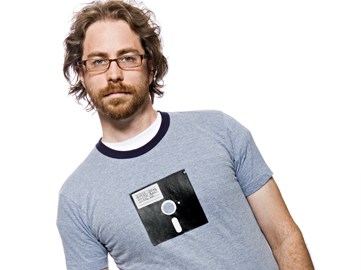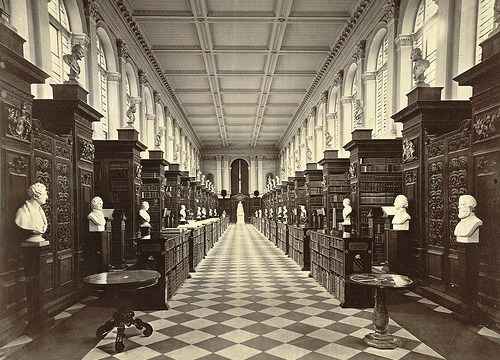The “Internet Famous” Jonathan Coulton

Singer/songwriter Jonathan Coulton is so famous that you might never have heard of him. That’s because he’s “internet famous” (i.e. he has a passionate fan base that he’s built up online, but his face isn’t recognizable enough that he would get stopped by people on the street).
In his Big Think interview, Coulton describes the process of writing a comedy song, saying that his inspiration usually comes from a nugget: a line, an image, or even something a character would say. Coulton has had many songs
that have gone viral
; from his breakout tune “Code Monkey,” which is
about a sad software developer, to “The Future Soon,” a song
about a depressed pre-teen who imagines a world where technology saves
him.
While many of Coulton’s songs are comedic, he says comes up with his best ideas by listening to sad bluegrass. His favorite song? “My Precious Children” by the Stanley Brothers. “He’s talking about how his kids have grown up and moved away … I’m getting a little shivery just thinking about it,” says Coulton. “Maybe it’s because I’m a parent now that, that means so much to me, but that’s the one that I was driving somewhere in the car and that song came on and I started weeping.”





